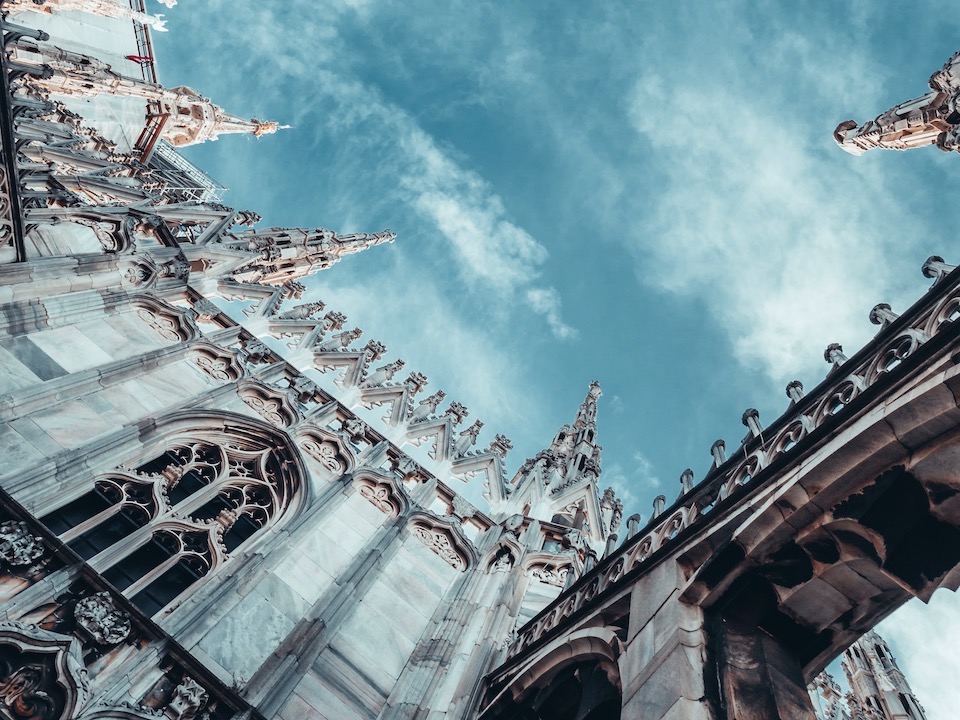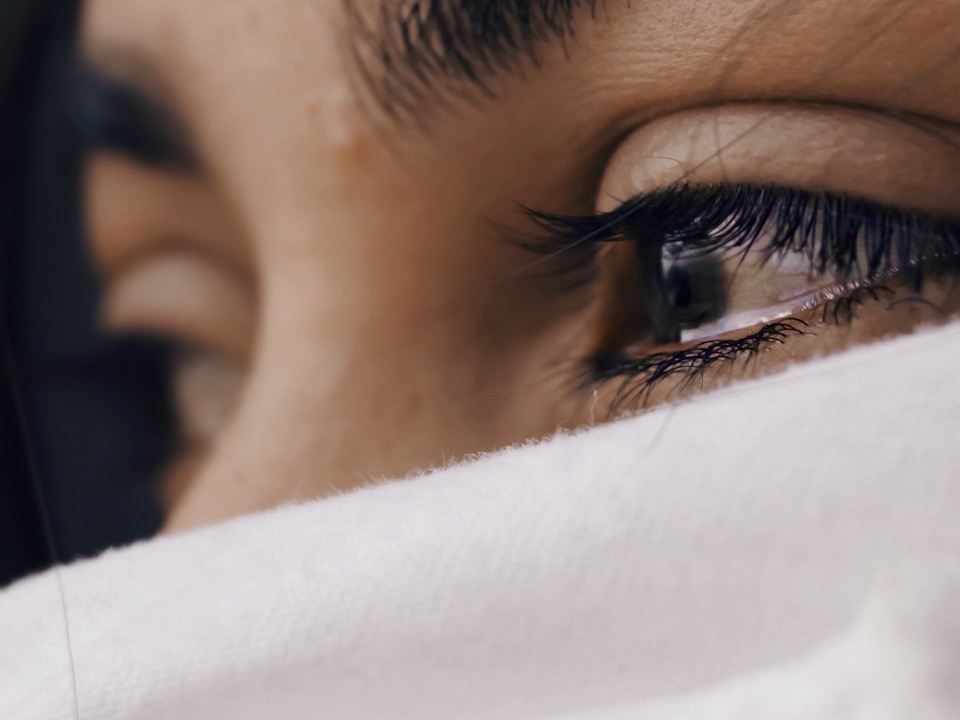
Is it worth staying here?

To be Franca in Milan

Even during the courtship, he promised her that, if they ever got married, the honeymoon would be in Paris. “Ah! Paris, the capital of love!” — She exclaimed, sighing with excitement and thrill, longing for that much-desired moment. “Wow! How romantic!” — feeling a liveliness being born among her insides while delirious with pleasure, just thinking about what her first night of love would be like.
They got married in the village church. He made the wedding cake himself. After all, a well-known confectioner in the region, he exuded his sweet charm wherever he went. It was the coveted heartthrob together with the charming lady, chattered the local folk. The girl’s dress was different from a traditional one. Of course! It was inspired by a revolutionary French fashion designer.
However, after almost fifty years, Maria is still waiting for her honeymoon in the French city. At the time, they did not even leave their national territory. They traveled to some place at sea, which she herself makes a point of not remembering.
Apparently, her first time was a disaster. When she comments, she leaves words with hints of predicates dotted with some very pejorative verbs. She avoids revealing the main subject of this prayer: she has lost faith. Still, she has fathered fruit. But the bitterness of lack of enjoyment continues to this day.
Look! Maria and Giuseppe are not so limited financially. Observing some of her jewelry, it is possible to confirm some capricious affections of her husband. However, from Giuseppe’s posture, traveling seems to be a cultural learning issue with language as a natural barrier. And today, in old age, they find an excuse to avoid leaving the region where they live. At most, they allow themselves to go to see the sea once a year, alongside their children and grandchildren.
However, in his few arguments, Giuseppe usually claims to have only postponed a trip that he does not even know if one day will happen. After all, today, the past is more active in his memory than his own present. His current reminiscence is selective; he often needs to receive the same information several times before he is able to process it. Afterward, everything is deleted and just something there in the distant old memory resurfaces as new.
Maria, as the daughter of a society where a woman should follow only what her husband said or proposed, was lost in time and bitterness in constantly denying the present.
…
After years of prose, listening to Maria’s laments, Sofia suggests a couple’s trip to Paris. All on her account. Naive idea! “There is no way to recover fifty years of history” — reflects Maria. Still, the girl insists. After months, Maria suggests to the girl to make herself, instead of the couple, the dream trip.
How so? She explains: Sofia would go everywhere that she, Maria, desired to know so much. However, wouldn’t she have seen it all on television, books, newspapers and, or, magazines? “No!” — inflated the lady. She denied saying that no one had ever come to Paris, exclusively, for her. Thus, Sofia accepted the counterproposal.
Maria just didn’t know that Paris was also Sofia’s romantic dream, but had never revealed it. Despite traveling around the world, Sofia always avoided Paris because of her dreams of going there accompanied by her charming prince – Do the children’s stories cause so much brain damage from the absurd overdoses of romanticism? Well! Let it go.
At nightfall, as she drove into the City of Light, she saw the magnificent Eiffel Tower appear far away on the horizon. Her heart began to beat much faster when she heard, on her selected list of French songs, the melody La vie en rose, by Edith Piaff:
“Voilà le portrait sans retouche de l’homme auquel j’appartiens. Quand il me prend dans ses bras, Il me parle tout bas, je vois la vie en rose” (“There is the untouched portrait of the man I belong to. When he takes me in his arms, he speaks softly to me, I see life in pink” — in an English translation.)
While listening and babbling to the music, she wondered if she, one day, would also see life in pink. Despite trying to be very practical in existence, in a matter of love, she does not risk being so rational. She shook her head to dismiss the thought. She thought about stopping for coffee. She must have been tired of the hours on the road, but she gave up when she remembered the time and probably the caffeine would make a good night’s sleep in vain.
Following her friend’s wishes, Sofia stayed in an old hotel in the heart of the city, a Renaissance and high fashion area. Next to the Louvre Museum and overlooking Notre-Dame Cathedral and the Seine River. It was a dream hotel. Faced with this scenario frozen in time, the girl feels good with the old styles and, at times, she has the impression of being born in the old decade.
Paris is more than an aspiration — thought Sofia. When she started walking around the city, she was enchanted and involved with every bit of history. As she was tasked with visiting someone, after the line to enter the Louvre Museum, she faced yet another to meet her, considered a deity of art. In that crowd of people and daring push-push, with clicks of photos on different types of cameras, she continued with an intact look towards the Mona Lisa.
In Giuseppe’s words, La Gioconda is gioia — joy, in Italian — the celebration of love. And, according to him, the latter does not need to be translated into any language, because it is feeling and art is emotion. According to Giuseppe, La Gioconda is the purest expression of the Italian Renaissance. In fact, it is not for nothing that the painting is described as an enigmatic subtlety filled with atmospheric illusionism.
However, Sofia went to see the Mona Lisa to seek the answer to the question appointed by Maria. After spending minutes mesmerized by the look of the painted figure, Sofia was gently removed from the line by a guard. Not prevented from continuing in the space, the girl returned to the ward, repeating the whole process. She spent hours in that room waiting for an epiphany and nothing.
She took a boat and allowed herself to see part of the city passing by along the Seine. She realized that the romanticized images of couples in love are only in the books read and films seen during decades of life. The reality is often disconcerting in such a modern and technological world.
Yet, the captain of the boat was the most elegant and kindest person she met on board. Eloquently, he curiously solved every curiosity aroused by Sofia. Wow! What a man! Tall, fair skin, black hair, attractive eyes, hands of… What a pity to be sexually adept to the same gender. Do what? As a great friend says, “the world is gay.”
The trip was committed to just three days off. She visited a few venues and gave herself the right to spend well for breakfast, lunch, and dinner in the restaurants indicated by those with an understanding of the subject. She was sated.
On the last day, after facing the long and exhausting line to climb the Eiffel Tower, she realized she was lost in herself before the world around her. She took a deep breath and thought it best to end the visit to the city taking the famous French macaroons as souvenirs for Maria and Giuseppe. So, in the café of the tower, facing a variety of colors, she asked the attendant to indicate which flavors to bring to the couple.
When asked about the couple, she revealed part of her quest to fulfill Maria’s wishes. The beautiful young man with brown skin and honey-colored eyes looked at her with such intensity and said, in a very soft tone:
‘You can take the macaroons to your dear friend, but the answer to what she seeks can only be savored by herself. After all, that master creator of the Theory of Relativity already referred to the past, present, and future only as an immutable illusion.”
After a brief pause, he continued:
“Mon Cherry, it doesn’t matter space or time, nor does it make sense to carry a replica to the other, because what you’re looking for is just inside you.”
By Edsandra Carneiro
Photo by Chris Karidis on Unsplash


